‘Bridgerton’ author Julia Quinn shades ‘raunchiest show’ headlines: ‘It’s really not’
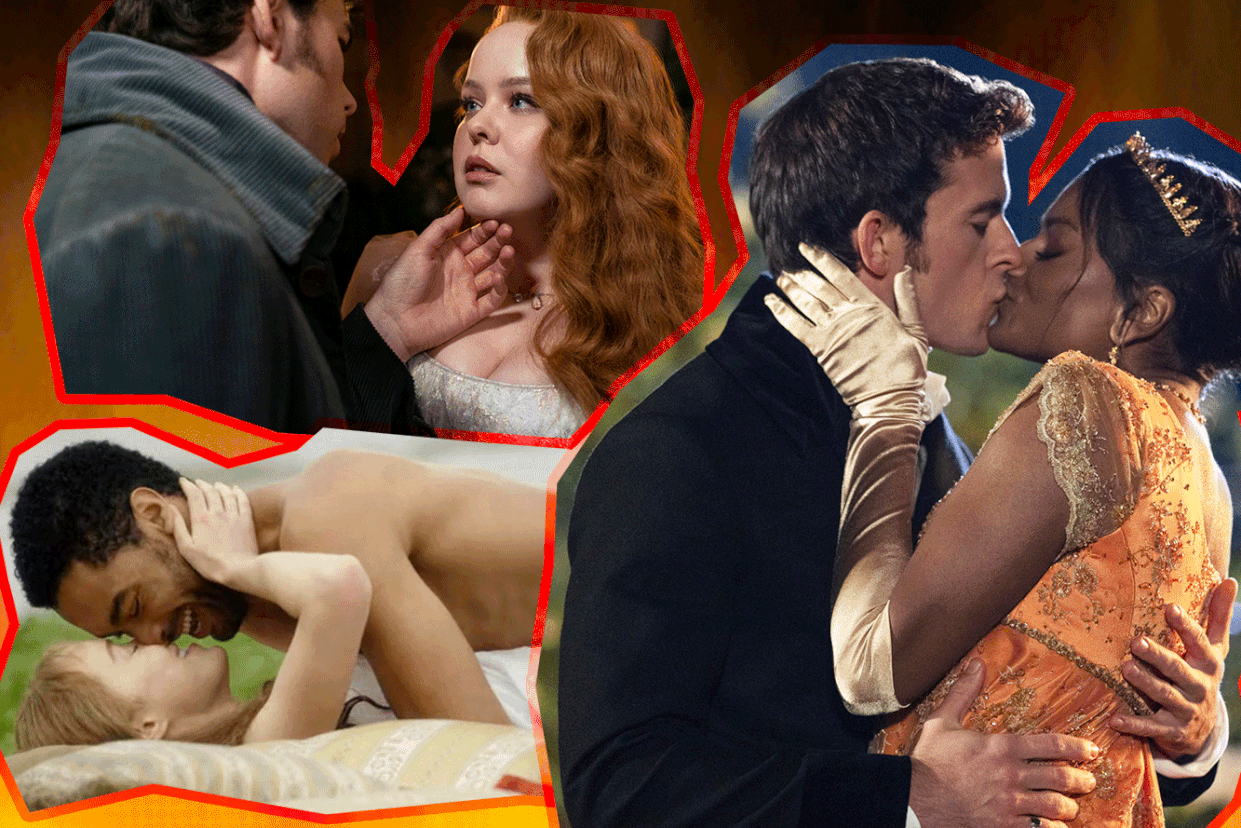
The Netflix hit “Bridgerton” is notorious for its steamy scenes, but author Julia Quinn, who wrote the books on which the show is based, said she doesn’t quite understand why.
“It’s just very interesting, the way that people talk about the intimacy [on the show],” Quinn told The Post ahead of the Season 3 premiere.
“Because, I’ll see headlines like ‘Netflix’s raunchiest show!’ and I’ll be like, ‘It’s really not.’”
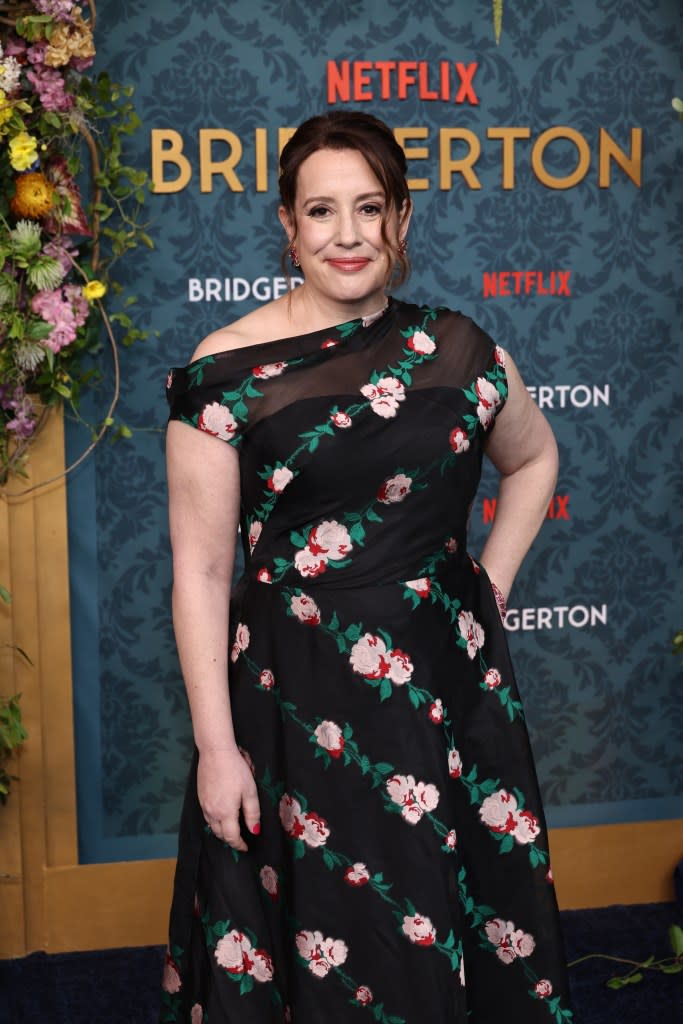
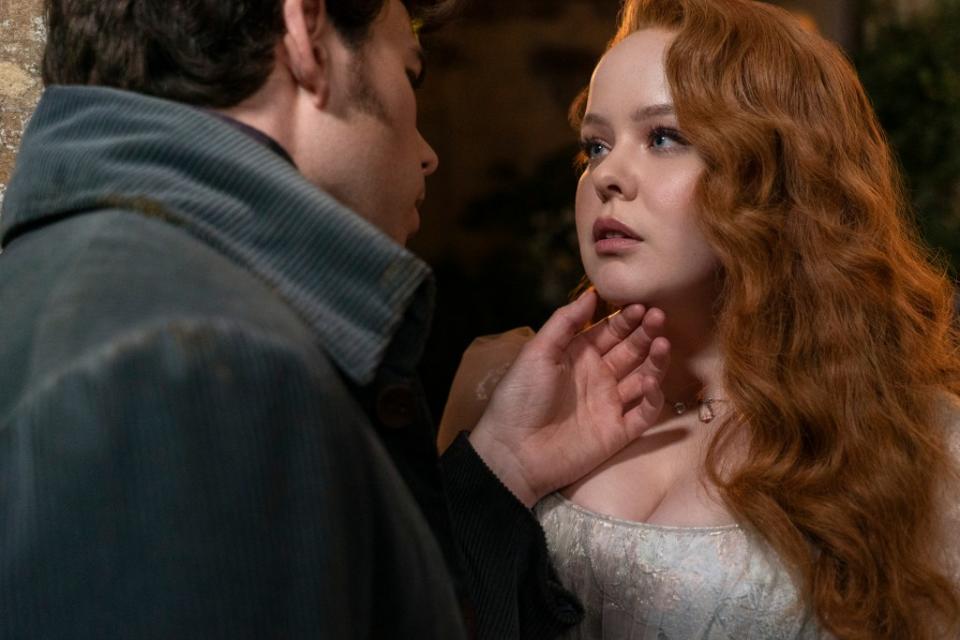
The show, the third season of which premieres Wednesday, is based on Quinn’s series of historical romance novels about the Bridgerton family.
Each season of “Bridgerton” follows a different member of the family as they find love in Regency era England, amid the backdrop of ballroom dances, gossip and scandal.
Season 1 follows Daphne Bridgerton (Phoebe Dynevor) as she steams up screens with the dashing Simon Basset, Duke of Hastings (Regé-Jean Page). Season 2 follows Anthony Bridgerton (Jonathan Bailey), who gets his happily-ever-after with Kate Sharma (Simone Ashley) — and some fans complained there wasn’t enough sex that season.
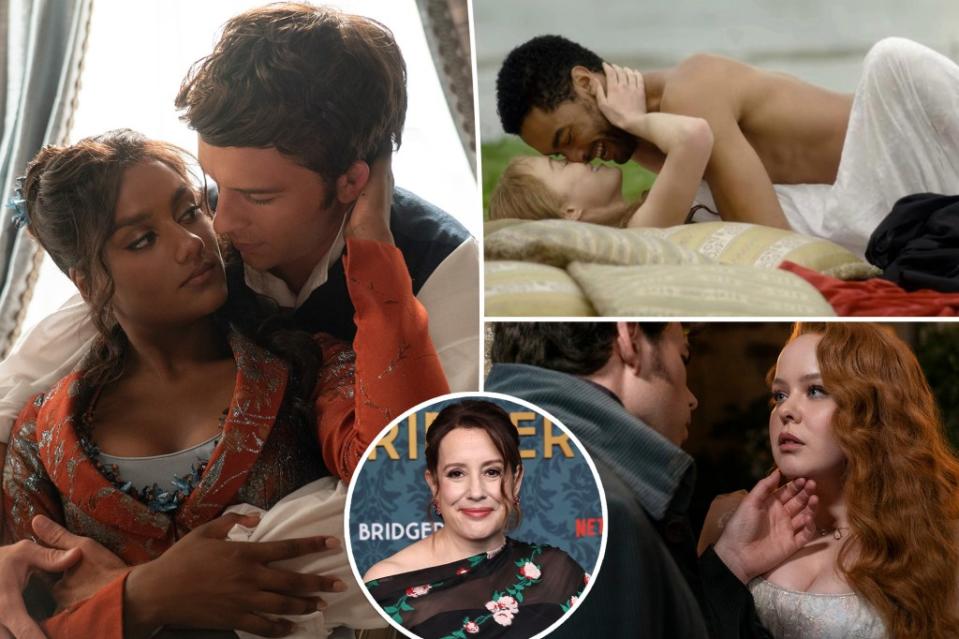
Now, Season 3 follows Penelope Featherington (Nicola Coughlan) as she finally gets noticed by her longtime crush, Colin Bridgerton (Luke Newton).
The actors have already said that they broke furniture while filming a sex scene.
Additionally, Coughlan and Newton have said that they can’t watch the steamy moments with their families. But Quinn didn’t have the same qualms.
“I do watch it with my family, and we were just fine,” she said.
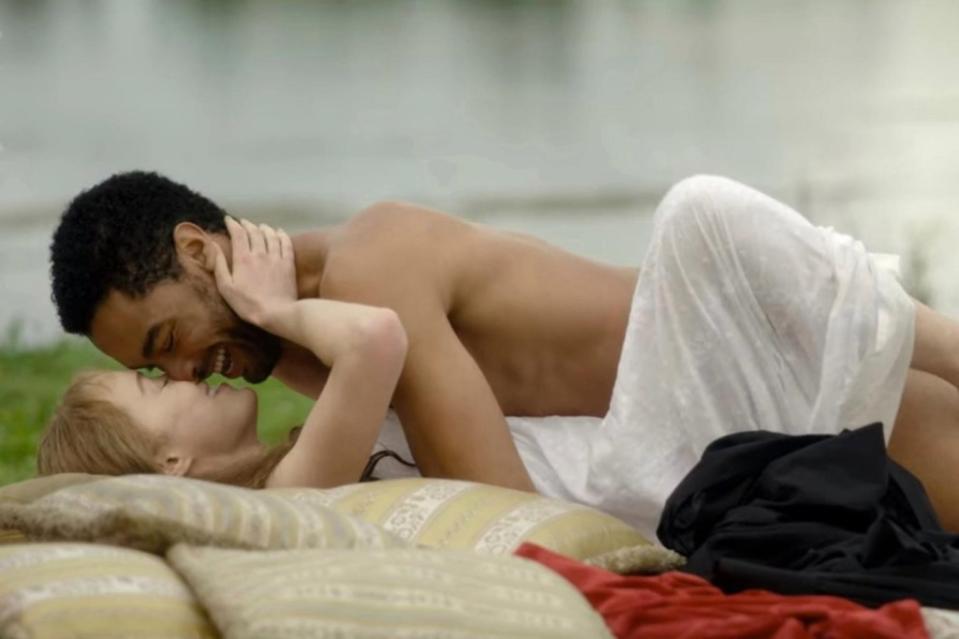
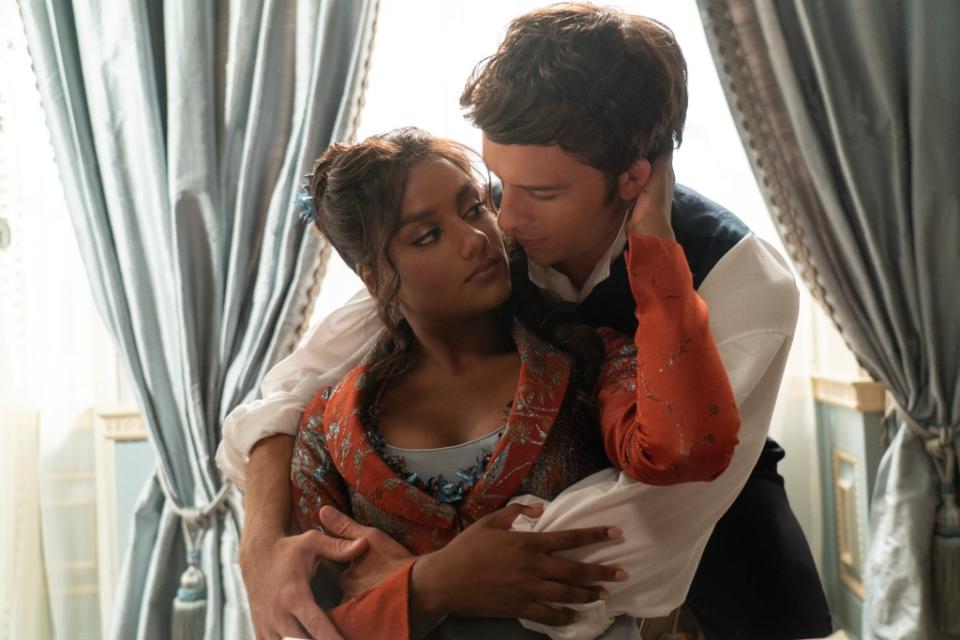
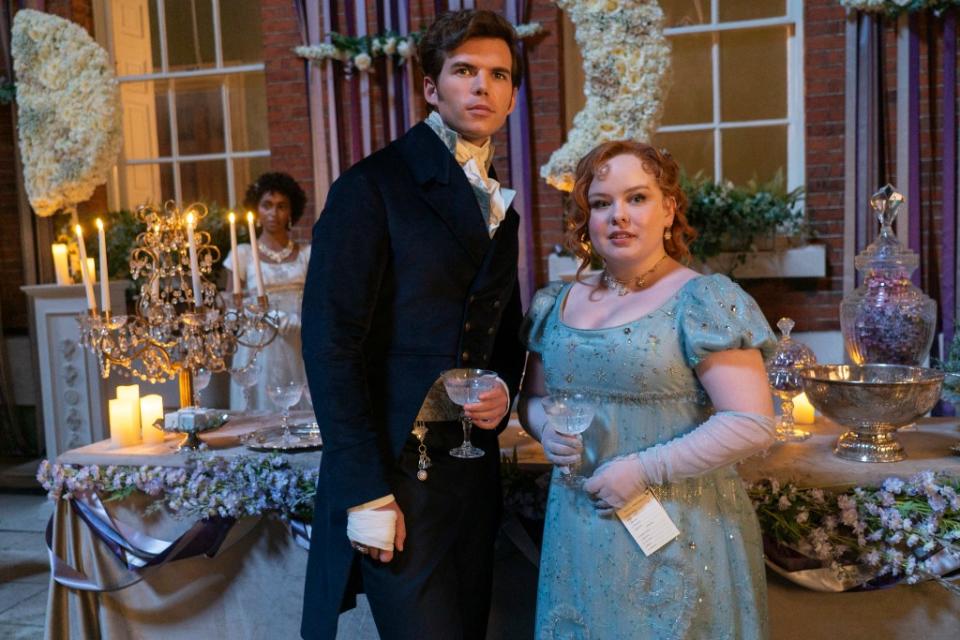
Quinn believes there’s a double standard regarding the attention that “Bridgerton” gets for its sex scenes, versus the way sex scenes get discussed for darker or more violent dramas.
“There are plenty of other shows that show the same level of intimate scenes, and the big difference is that ‘Bridgerton’ is showing it from a different point of view,” she said. “They’re really leaning into the female gaze. They are showing intimacy as something that’s not necessarily transactional, but something that’s part of a growing and healthy relationship.”
“I feel like the media and press doesn’t know how to talk about that. So they put other words on it,” she went on. “It’s kind of funny. If the sex is accompanied by a lot of violence in the show, it’s not raunchy, it’s just part of it. But if the show is not edgy and violent, and the intimate scenes are part of a love story that goes somewhere, and there’s a happy ending, then it’s called raunchy. And I’m like, ‘Is it?’”
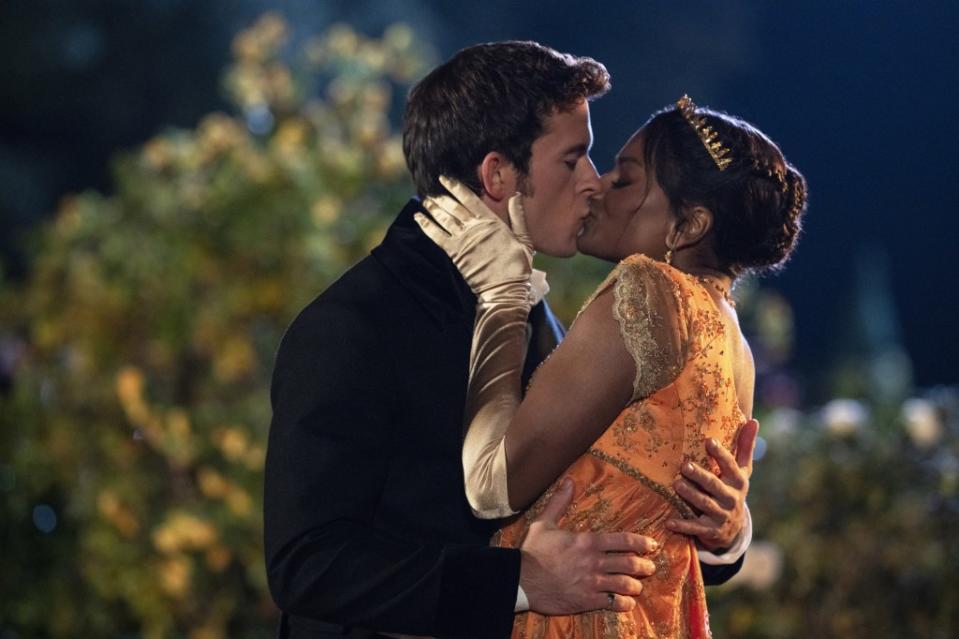
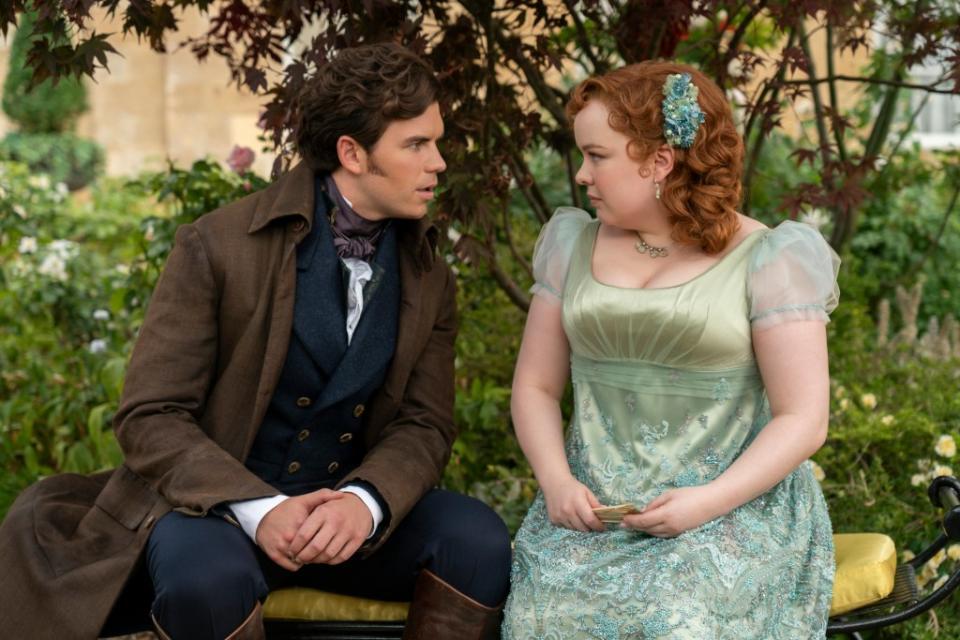
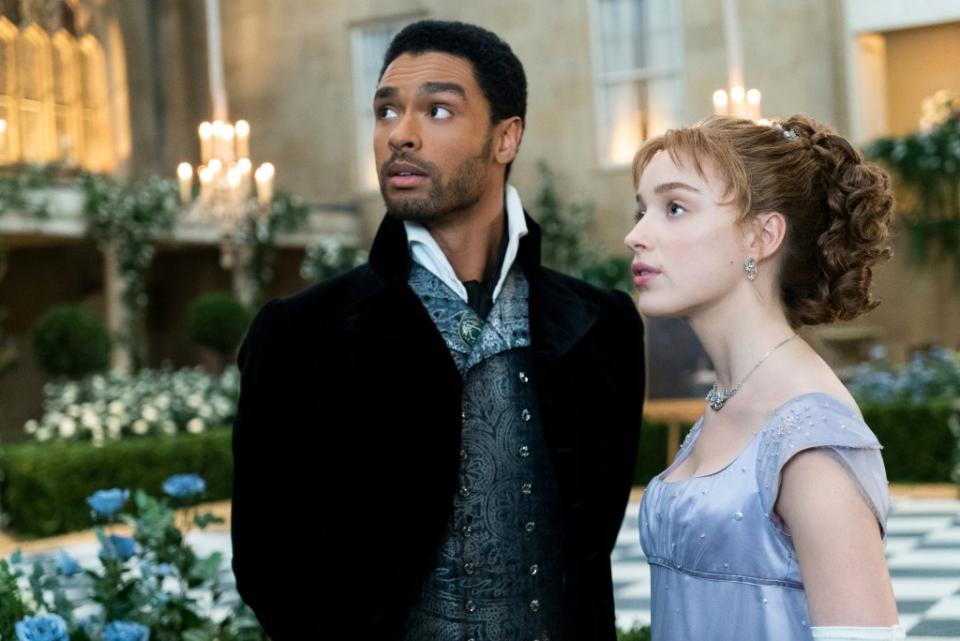
Art forms “that elevate happiness and love,” Quinn said, aren’t generally treated like they’re as important as ones “that are tragic or mysterious.”
“It’s really too bad,” she said. “Because I think we can all use more happy endings. And there’s nothing wrong with portraying that and enjoying that.”
